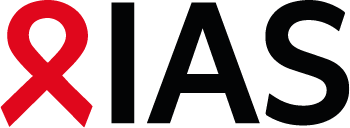Share Abstract
Safety profile of dolutegravir (DTG, S/GSK1349572), in combination with other antiretrovirals in antiretroviral (ART)-naïve and ART-experienced adults from two phase IIb studies
Abstract Content:
Background: DTG has demonstrated potent, sustained antiviral activity with once daily, unboosted dosing in ART-naïve and -experienced adults. The safety profile in the Phase IIb development program was examined.
Methods: 48 week data from a multicentre, partially-blinded Phase IIb study (SPRING-1) in therapy-naïve adults receiving 10mg, 25mg or 50mg DTG or efavirenz (EFV) 600mg once daily (QD) and 24 week data from a multicentre, single arm Phase IIb pilot study (VIKING) in raltegravir-resistant, therapy-experienced adults receiving 50mg DTG QD were analyzed.
Results: 232 subjects received study drug (182 DTG; 50 EFV). The most frequent drug-related AEs observed on DTG were nausea (11%), diarrhea (8%) and headache (5%). Dizziness (18%), fatigue, insomnia and rash (8% each) were common with EFV. Few withdrawals due to AEs occurred in subjects receiving DTG: two subjects in SPRING-1 due to dyspepsia (related, 25mg) and Burkitt's lymphoma (unrelated, 50mg) and two subjects in VIKING-1 (50mg QD) due to brain mass (unrelated) and febrile bone marrow aplasia (unrelated). Few SAEs were reported in subjects receiving DTG; none were considered related to DTG. In subjects receiving DTG, small mean increases in creatinine (6.4-11.9mmol/L) were noted at Week 1, remained stable to Week 20 and then decreased out to Week 48. In vitro data show DTG causes a benign inhibition of creatinine secretion. Treatment-emergent G3/4 hematologic toxicities were infrequent on DTG (4%) and EFV (4%) in SPRING-1, with none in VIKING. Treatment-emergent Grade 3/4 liver chemistry elevations were uncommon: one subject (DTG 10 mg) in SPRING-1 had exercise-related, transient, asymptomatic G3 AST and G4 CPK. In SPRING-1, Grade 2-4 ALT elevations were more common on EFV (5/50, 10%) than DTG (4/155, 3%).
Conclusion: DTG was well tolerated across the treatment spectrum; its safety profile supports continued development. Phase 3 studies are underway.
Methods: 48 week data from a multicentre, partially-blinded Phase IIb study (SPRING-1) in therapy-naïve adults receiving 10mg, 25mg or 50mg DTG or efavirenz (EFV) 600mg once daily (QD) and 24 week data from a multicentre, single arm Phase IIb pilot study (VIKING) in raltegravir-resistant, therapy-experienced adults receiving 50mg DTG QD were analyzed.
Results: 232 subjects received study drug (182 DTG; 50 EFV). The most frequent drug-related AEs observed on DTG were nausea (11%), diarrhea (8%) and headache (5%). Dizziness (18%), fatigue, insomnia and rash (8% each) were common with EFV. Few withdrawals due to AEs occurred in subjects receiving DTG: two subjects in SPRING-1 due to dyspepsia (related, 25mg) and Burkitt's lymphoma (unrelated, 50mg) and two subjects in VIKING-1 (50mg QD) due to brain mass (unrelated) and febrile bone marrow aplasia (unrelated). Few SAEs were reported in subjects receiving DTG; none were considered related to DTG. In subjects receiving DTG, small mean increases in creatinine (6.4-11.9mmol/L) were noted at Week 1, remained stable to Week 20 and then decreased out to Week 48. In vitro data show DTG causes a benign inhibition of creatinine secretion. Treatment-emergent G3/4 hematologic toxicities were infrequent on DTG (4%) and EFV (4%) in SPRING-1, with none in VIKING. Treatment-emergent Grade 3/4 liver chemistry elevations were uncommon: one subject (DTG 10 mg) in SPRING-1 had exercise-related, transient, asymptomatic G3 AST and G4 CPK. In SPRING-1, Grade 2-4 ALT elevations were more common on EFV (5/50, 10%) than DTG (4/155, 3%).
Conclusion: DTG was well tolerated across the treatment spectrum; its safety profile supports continued development. Phase 3 studies are underway.
